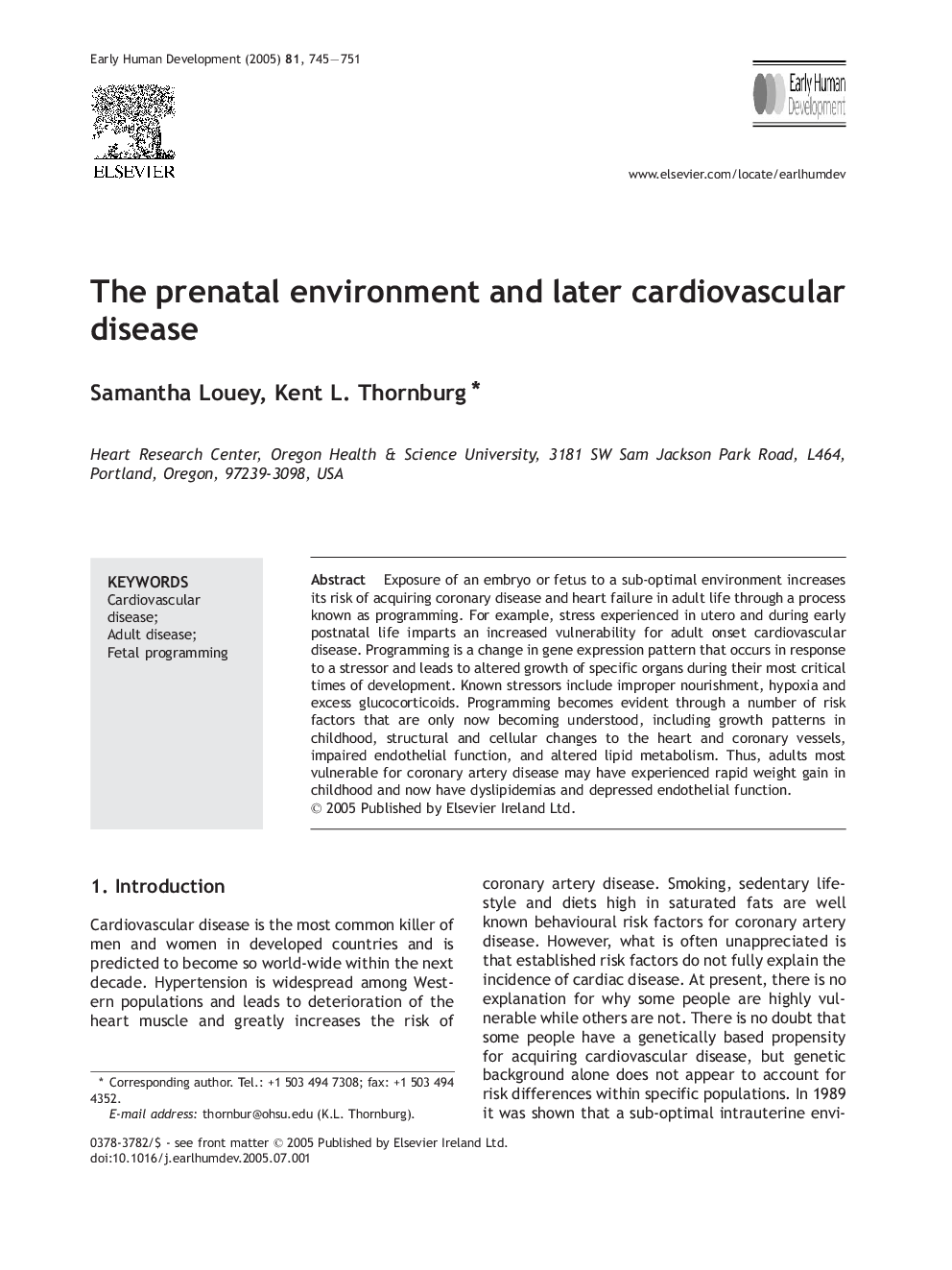| Article ID | Journal | Published Year | Pages | File Type |
|---|---|---|---|---|
| 9318829 | Early Human Development | 2005 | 7 Pages |
Abstract
Exposure of an embryo or fetus to a sub-optimal environment increases its risk of acquiring coronary disease and heart failure in adult life through a process known as programming. For example, stress experienced in utero and during early postnatal life imparts an increased vulnerability for adult onset cardiovascular disease. Programming is a change in gene expression pattern that occurs in response to a stressor and leads to altered growth of specific organs during their most critical times of development. Known stressors include improper nourishment, hypoxia and excess glucocorticoids. Programming becomes evident through a number of risk factors that are only now becoming understood, including growth patterns in childhood, structural and cellular changes to the heart and coronary vessels, impaired endothelial function, and altered lipid metabolism. Thus, adults most vulnerable for coronary artery disease may have experienced rapid weight gain in childhood and now have dyslipidemias and depressed endothelial function.
Related Topics
Health Sciences
Medicine and Dentistry
Obstetrics, Gynecology and Women's Health
Authors
Samantha Louey, Kent L. Thornburg,
